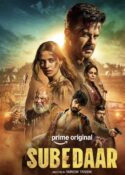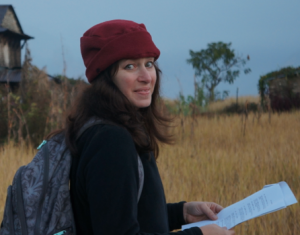 There are some films that are just more than the images onscreen and Sold is one of those films. It not only takes you on the journey of Lakshmi, a thirteen-year-old Nepali girl who is sold into prostitution in India, and her tale of survival, escape and hope, it also puts you in the middle of the global issue of human trafficking.
There are some films that are just more than the images onscreen and Sold is one of those films. It not only takes you on the journey of Lakshmi, a thirteen-year-old Nepali girl who is sold into prostitution in India, and her tale of survival, escape and hope, it also puts you in the middle of the global issue of human trafficking.
Sold, based on the book by Patricia McCormick, was directed by Jeffrey D Brown and produced by Jane Charles. The film also had noted actress Emma Thompson on board as exectuive producer. Featuring Gillian Anderson and David Arquette, the film also boasts a cast that includes Seema Biswas, Sushmita Mukerjee, Tillotama Shome, Parambrata Chatterjee, Priyanka Bose, Ankur Vikal and many others. Sold has been creating a buzz and moving people to act at festivals in LA and Albuquerque and the next stop is the London Indian Film Festival.
Before I began my research to prepare to talk with the producer and director of Sold, I had some idea of the horrific scale of the human trafficking issue, but I soon learned I actually had no concept. In India alone, based on a study by ZeroTrafficking in 2013, 16 million women were victims of sex trafficking and of those, 40 percent of these victims were adolescents and children, some as young as nine years old.
Sold, is the story of one of those girls, taken from the stories of the lives of survivors. It is ultimately a story of hope.
I was honored to be able to talk with producer Jane Charles and director Jeffrey D Brown. Their passion for their film and even more their plans and goals to use this film to work towards eradicating human trafficking was life changing.
First the trailer
Now producer Jane Charles tell us about her life altering journey on the way to making Sold, her hopes for the film, the circles of change and more.
The Journey to Sold
At the time I was running a commercial production company in Vancouver BC and had worked in the film industry there for 22 years. I was introduced to Jeffrey, who was thinking about getting back into commercials, but looking for something more. The more Jeffrey and I talked, the more we realized that we were both in the same place in that we wanted to do something that was more cause-based and brought more of our spiritual side and more of the humanity of what we enjoyed about our work and of making films. We had done a lot of work in our lives which was philanthropic, we were mentoring and teaching, doing PSAs (Public Service Announcements) and traveling the world. We wanted to bring that all together with our film work. We wanted to do something with spreading the word and the power of film to create change.
Jeffrey had been talking about doing another film on human trafficking with Joe Kwong, the writer who wrote the first draft of our script. Then Joe’s wife read Sold. Joe read it and told Jeffrey about the book. Jeffrey was really touched by the book. He called me and said you really need to read this, I think it would make a great film and I think you will really connect with it. I read the book and I cried – I had no idea. This was in 2007. I did not know about human trafficking. Reading this book really started this whole research about this issue and about what happens out there. When I read the book it wasn’t just a visual story, it wasn’t just this story about this young girl, we saw the possibility to create change right from the beginning. Talking with the author Patricia McCormick and her journey, we wanted to live that journey too and wanted it to be something that we carried. It was inside us.
Research 
1993 was my first trip to India, and you know I fell in love. It took me about two weeks for India to get inside me. Once India is inside you, it becomes a part of you; it is like it another home. I get off the plane in India and I feel really at home there. For this film, we went to India and Nepal to do research and that first research trip was so eye opening. It is like getting into the different layers of a culture and meeting people I never would have met if I was just going around India. I never would have known they were there. We went to all the NGOs that we read about and those people kept introducing us to other people and we saw more. The NGOs were so amazing and they all helped us by setting up interviews with some of the survivors. As a mother it was hard for me to see these young girls that were in the rescue facilities. At one rescue facility we saw 150 girls that should hold 100. They were all in bunk beds because many couldn’t go home yet because they had to be reintroduced to their country, in some cases reintroduced to their villages, and their families had to be found. In many cases they are from Bangladesh and they have to be repatriated, which can take two years. So just through the process of making the film I carried that with me: the thought about all these girls who are not with their families, who don’t have their mothers with them, there is no one taking care of them. They live in these rescue societies and they may have some health but they are not getting the services they need. Many of them have AIDS and have to live at the facilities to get the medicine they need. They are not healing. They don’t have their life back yet. So what can we do to help them?
We had to keep reminding ourselves that we were making a narrative feature film not a documentary because we got so involved in the issue that some days all we were talking about was the issue. Then we would say ‘oh right we have to get back to this, this is a script and this is a story we have to tell’. But we wanted to bring as much authenticity as possible and tie in all the stories of the hundreds of the girls we talked to and the thousands of survivors in India and Nepal we met and heard their stories. In that part of the world there were a lot of common threads about how they were tricked and duped into thinking they were getting a better job. They would bring a better life to their families and they were going off to the big city to send money home. A lot of that was already in the book, but there was some details that we heard that we were able to bring into the script. Jeffrey did an amazing job of just really digesting everything that we heard and then bringing those little bits of authenticity to each scene and each character.
Sold is about Hope
The thing we kept keeping in the forefront in our minds was to create hope. We HAD to create hope with this story, you can’t just show people the issue and not show there is a way out. You have to show that there is hope and that there are girls who get out, there are girls who escape, and there are girls who are rescued. There are people who are actually working every day to help these girls and to put an end to this horrific issue and problem.
We wanted to bring people into this issue through the eyes of one young girl so they could really feel it and get it. So it wasn’t like they were just watching from the outside. We wanted them to see what it is like for her day to day and how she deals with the situation. And to see that the brothel areas are communities, they live together, they eat together, they have their own economy, they have their own sets of rules and regulations.
Getting back to hope, for us it was all about keeping in mind that this is a young girl, that she is not broken, that she is going through a really difficult situation but her sprit will prevail. She will get through it and she will be able to come out the other side whole. Yes, it will take some time for anyone that has gone through this situation to heal and get better. We wanted to show that these girls are still girls. We have seen many of them at a rescue facility and they are still children. They play together, they laugh together, they do each other’s hair. They have a period, of course, of healing once they are out of the situation, but once they are out there really is a possibility for them to have a full life.
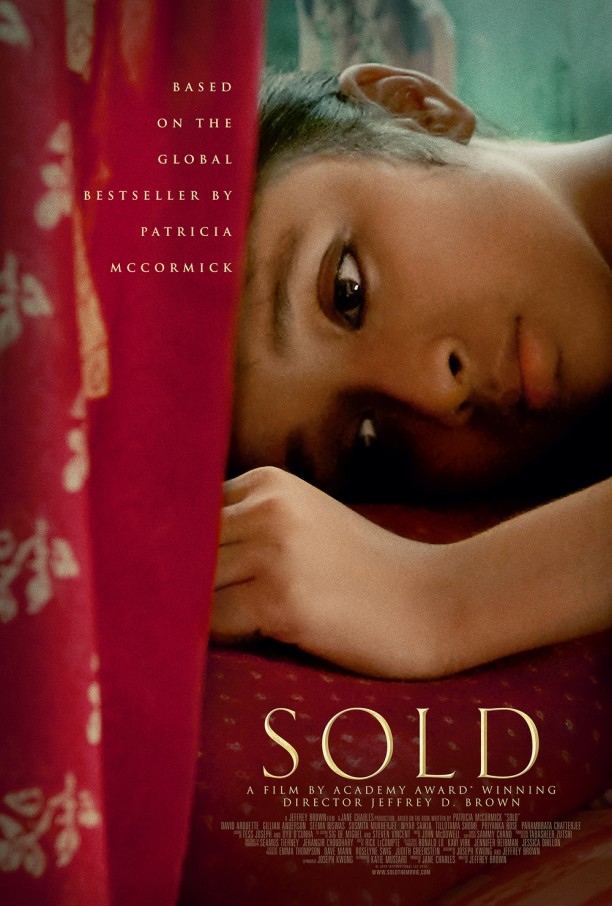 Emma Thompson
Emma Thompson
She knew about the issue way before we did. Emma Thompson was the spokesperson and now is the president of the Helen Bamber Foundation. Emma teaches yoga to trafficking survivors, young women in her home. She has done this for years. The Helen Bamber organization supports the rehabilitation of people who have been through horrible human rights violations. They have recently been doing something with the prisoners of Guantanamo Bay. We were in New York City for the film and we heard about “Journey” which was an art installation in rail cars that was in Washington Park in NYC by that foundation. We went to Journey (http://www.helenbamber.org/journey/) and it was a really powerful exhibit about what it feels like to be trafficked. You are in a dark railcar and then you are in a brothel and there is a fake room when you get out, and you feel what it is like to be released from this craziness. At that point we met Helen, who is a real fireball. We talked to her about Emma and said we would love Emma to read the script. We left the script with them to get to Emma. Months went by and we didn’t hear anything and when we asked, Emma still hadn’t read the script. Then one of our actors Neerja Niak was in London and we asked her to print out a hard copy and give it to Emma’s assistant and drop a copy off at the Helen Bamber Foundation. She did and this time Emma got and read the script. We were on a location scouting trip to India. We got up one morning and we are in the office in India and we had an email from Emma, “Darling I read your script. It is amazing.” This first email she sent us was amazing. She said, “I really support what you are doing. I would love to help you in any way. I would love to help you put the film together. I would love to be an executive producer on the film.” And we cried. That was the beginning and things really started rolling from there. We got most of our funds within the next year. We then shot the film in the fall of 2012 and then went back in the spring of 2013 to do some pick up shooting and now here we are.
The Music
The composer is John McDowell, who is the composer of Born into Brothels. We loved what he did with Born into Brothels. The music was just so haunting and at the same time there were joyful pieces. We really wanted to work with him on Sold. So John, once he saw the film, really wanted to be a part of it and we worked with him for 6 months or so. Jeffrey went out to New York and spent some time with him going over all the music ideas. He composed the base score of the film. Then we had other musicians. Sammy Chand was our music supervisor. Sammy’s music is really fun and he does sort of a global mix and we wanted to get in that global feel. We have everything from Bollywood hits to hip-hop.
Then we brought in Salim and Sulaiman, who as you know, are Bollywood hit makers and they did the ‘Namaste’ song. Everyone who has heard the song really feels it could be a hit. We are planning at some point to do a music video to promote the film and use ‘Namaste’ as a calling card for the film.
How Sold changed Gillian Anderson and David Arquette
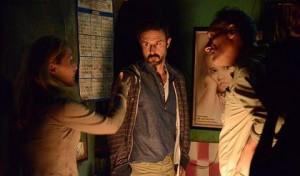 You know we were in prep for a while for the film. We went to a CAST (Coalition Against Slavery and Trafficking) in LA and we invited David Arquette to come with us. I think that was sort of his entry point into the issue. The whole Arquette family is very philanthropic. His sister Patricia has an organization that helps out in Haiti and David has gone over there to help her. They have always been involved with philanthropic causes. He came with us to CAST and he was so moved by what was happening around the US in terms of human trafficking that he became an advisor and spokesperson for CAST LA. He has been involved with them and he continues to talk about the issue and about the film when he is on Howard Stern. So yes, it has really changed him.
You know we were in prep for a while for the film. We went to a CAST (Coalition Against Slavery and Trafficking) in LA and we invited David Arquette to come with us. I think that was sort of his entry point into the issue. The whole Arquette family is very philanthropic. His sister Patricia has an organization that helps out in Haiti and David has gone over there to help her. They have always been involved with philanthropic causes. He came with us to CAST and he was so moved by what was happening around the US in terms of human trafficking that he became an advisor and spokesperson for CAST LA. He has been involved with them and he continues to talk about the issue and about the film when he is on Howard Stern. So yes, it has really changed him.
Then Gillian Anderson, she has always wanted to be involved in the outreach somehow. When she came over to India, she fell in love with India and she really loved the people. She says the whole experience has changed her just being there. She will be at LIFF and will speak about her experiences on the film.
How the Journey to Sold Changed Jane Charles
I had no idea that so much would happen! It’s really been life altering for all of us involved in the film. I know for me, I didn’t know it would affect me at home as much as it did on a global level. You know, we went to India and some of our investors came over to visit while we were there – location scouting and prep. They visited some of the NGOs as well to really get a sense of what was happening over there and then came home and said, “Okay, what is happening in our backyard if this is happening in India and Nepal? What is the issue here?” We in Seattle met with Youthcare and some of the local organizations to figure out what the issue was like in the US and decided to start our own non-profit in Seattle. StolenYouth (stolenyouth.org). It has become this amazing circle of support for these organizations in Seattle in such a profound way that we are now talking to another organization that wants to take StolenYouth nationally. They want to expand it because it is something that we can teach other communities to do. We don’t do the work ourselves because we are not experts, but we care enough to bring other people into the issue to educate and bring more awareness, to create these circles of support. We have raised over 1.5 million in the last two years for our local organization in Seattle alone. It’s been amazing! They have been able to scale up, and they have been able to provide more services. To see and hear that feedback from those organizations, also to hear from police officers who are now more informed and when they go to arrest a 14-year-old prostitute, they now realize that she is a victim not a criminal – That Is A Huge Key Change! That has to happen everywhere; it has to happen nationally in the US, and it has to happen globally.

Our plan for Sold is the same. We want to support several organizations with the issue on a holistic level. Changing laws, providing services, providing education and outreach and prevention because it is all needed. We can’t just rescue girls from brothels – that is not the solution. There is a greater issue, it is a 32 billion dollar a year illegal crime. It is the highest grossing illegal crime in the world – human trafficking. And it is getting worse because of the Internet and access to underground sites and the deep web. It is a much bigger issue than just underage prostitution, this is about underage trafficking. That is what we want to stop. We have to have tougher penalties for traffickers. I think that is something that has created real change in the countries that have that in place. I think it was Haiti, once they cracked down and not just with tougher penalties but actually were carrying out the penalties and putting these traffickers in jail. They moved on and they moved onto something else. I think if all of the countries and every city in the United States was much tougher, if we had tougher penalties and tougher laws for traffickers and they were actually carried, I think we would definitely see a drop in trafficking. I am sure.
It is now something that is becoming a hot button issue and thankfully the people are paying more attention to because WE HAVE TO – WE HAVE TO DO THIS! This is something that is not going away tomorrow, we actually have to do things that will stop it.
The Outreach
Making the film was 2 full time jobs because we were creating the film and this outreach at the same time. Using this film as a tool, we are creating this outreach which has become sort of this next step. Now that we have this amazing tool, I feel it is such a gift to actually have the film now and have people see it with a large audience and really feel how moved they are and how empowered they feel at the end just to do something about the issue. Our next stage is really developing this campaign to let people know what they can do and have actionable steps. So as soon as they see the film, what is it that they can do. There are so many ways that people can help because it is a global issue. It can be a little overwhelming when you look at the bigger issue but it is just not over there, it is in our own backyard. It is right here and people need to realize and they need to be able to see it. I think once your eyes are open to the issue, you can’t turn away. You have to find away to do something about it. And we all can do something about it.
You know as filmmakers we like to be as prolific as possible, we want to do films and keep making films. Just making this film, this issue has been so much bigger than just the film. We can’t move on. I know for myself I just can’t move on. I can’t leave this film on its own. No one will tell the story the way we will. A distributor won’t distribute it as we hope, unless we are all still involved with that too. The outreach as well. This is so important to us that I know I feel like I can’t move on to another film until we get this out there in the right way.
Hopes for the film
Our hopes are that it will educate and bring a lot of awareness to human trafficking. We see it as a large entry point to the issue. We have always seen it as a global film. It is our desire that it is distributed globally. That it makes people think. We hope that when people see the film they are moved and touched. We hope they want to find out more and find their own way in the issue. This is what happens with people when they find out about the issue, they find organizations in their own areas. They talk about it. So starting the conversation is a big piece of the awareness building for us. When people see the film they can’t stop talking about it. You know, at film festivals that we have shown this in, people would still be talking about the film for days after because they were so moved.
Our plan is to actually raise funds for the NGOs when we release, and what we want to do is help them scale up, have more services and help them be more effective. They are the experts in the field but our goal is to raise millions ($5-7 million) for those organizations in the next few years and help them do what they are doing. We are calling it Circles of Change. You know, I have seen so much change just in making the film, even before the film has a theatrical release, we saw things happening: like StolenYouth and other organizations that have either started or have become more effective because of our passion. And just talking about the subject of human trafficking and introducing people who have the means and the connection to really create change.
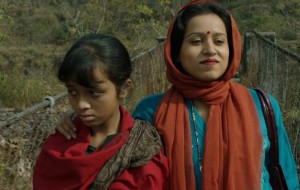 London Indian Film Festival
London Indian Film Festival
LIFF really had a wide reach. They really have done a great job of showing Indian films and alerting the press about the films that are out there. They also were really interested in being a part of the outreach and bringing this issue to light that that is what really engaged us. We had a long conversation with Cary and he said you know we really want your film, we really want people to see this, we feel it can create real change. We really want to help you bring it to light more. Also it is our first European screening. London is half way between where we are in the US and India so it is kind of a bridge between the US and India. We are really honored to be the Opening Night film for all these festivals, it has been amazing. We are really excited about LIFF.
Proud about Sold
That is hard. There are so many things. I am proud it is the tool we wanted it to be. We showed the film to 22 non-profits in Washington D.C and these are global organizations that work in human trafficking every day, and all of them hands down said it was one of the best (if not the best) films about human trafficking that they had ever seen. That it is a tool that they can use to show their constituents and use to teach people more about this issue on a global level. For us that was so gratifying because that has always been our goal. We just wanted to make sure that we had the tool that everyone felt they could use as a large entry point to the issue of human trafficking. And then the campaign will roll from there. I am proud that we do have that tool and that we will be able to really create change over a number of years.
I do want to add in closing, we do have a mobile campaign out now where people can text the word SOLD and also their email address to 51555. Then we will send them information and emails as we release the film. They can learn about screenings that we have and the outreach that we have and what they can do to help.
We would like to thank Jane for talking with us and giving us such amazing insight into the film and even more to the issue at hand. Stay tuned as we will have even more from director Jeffrey D Brown coming up tomorrow.
You can find out more about the film at http://www.soldthemovie.com.

